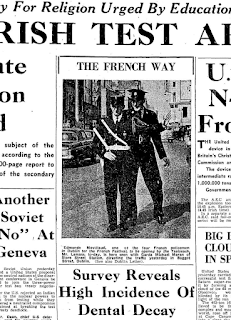The 16th of June is now celebrated around the world every year as 'Bloomsday'. It marks the day that Leopold Bloom, the fictional character in James Joyce's modernist novel Ulysses, wandered through the streets of Dublin city.
This year, for the first time in many years, an event was held in Cork. Organised by the Joycean scholar, Dr Flicka Small, it took place in Nano Nagle Place. It is fitting that an event was held in Cork, as it is the birthplace of James Joyce's father, John Stanislaus Joyce (1849-1931). It is also fitting that it took place in Nano Nagle Place, as Joyce's maternal grandmother (Ellen O'Connell) and her sister (Alicia) were educated in the South Presentation Convent (now Nano Nagle Place). You can read about this and the other links between Joyce and Nano Nagle Place here.
Speakers at the conference came from all over Ireland to talk about James Joyce, Cork, the Joyce family and of course, Ulysses. Local historians and residents of the South Parish, where James Joyce's father was born, discussed the history of the Joyce family in Cork.
Other events held in Cork this year to mark Bloomsday include a presentation in the Crawford Art Gallery of the work of the artist Angie Shanahan and a discussion with Dr Flicka Small about art in Joyce. In the Cork City Library, former Irish diplomat, Daniel Mulhall, read from his book about Ulysses and from Ulysses itself.
Well done to all involved in the Cork Bloomsday 23 events. Looking forward to next year's Bloomsday already.








